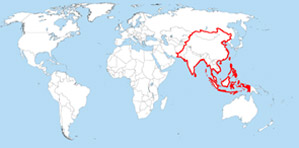
Last week at the Democratic National Convention, held in Charlotte, North Carolina, a woman peddling bumper stickers outside the event¡®s venue shouted to passers-by: "Not Made in China".
I turned back and gave her a questioning look. I asked myself: Should I try to debate her?
At the convention itself, various speakers talked of "stopping the outsourcing of jobs to China". US President Barack Obama, in his speech, proposed giving tax breaks to US companies that bring jobs back to the country.
At a time when the US unemployment rate hovers above 8 percent, "outsourcing" has become even more of a dirty word in the United States than in other industrialized nations.
These days, one gets an extremely strong sense that Americans are desperate to keep all of the jobs they can. What¡®s more, they want to take back jobs lost in the past, not only from China, but also from India and Mexico. Americans are willing to do almost anything - assemble cars, stitch together clothing, even make toys.
In China, meanwhile, increases in production costs are causing certain labor-intensive jobs to leave Shanghai and other big Chinese cities and go to countries where labor costs are lower.
One important thing to keep in mind here is that if the US citizens who want these jobs insist on being paid their country¡®s minimum wage, which amounts to about $7.25 an hour, their employers won¡®t be able to compete successfully in the global market. They¡®ll just go bust, causing more US jobs to be lost.
The technology company Apple Inc could see such a fate befall it. With a market capitalization of more than $600 billion, it has become the largest US business in history. Yet, if it did not have more than 1 million Chinese workers inexpensively producing components for it at Foxconn, Apple¡®s partner in China, Americans would probably have to pay twice or three times as much for the iPhones and iPads they buy. Without the help of those workers, the iPhone 5, which will hit the market on Sept 21, would probably be priced at $499 for the 16 gigabyte version, instead of the planned $199, and $899 for the 64 gigabyte version, instead of $399.
|
![]()